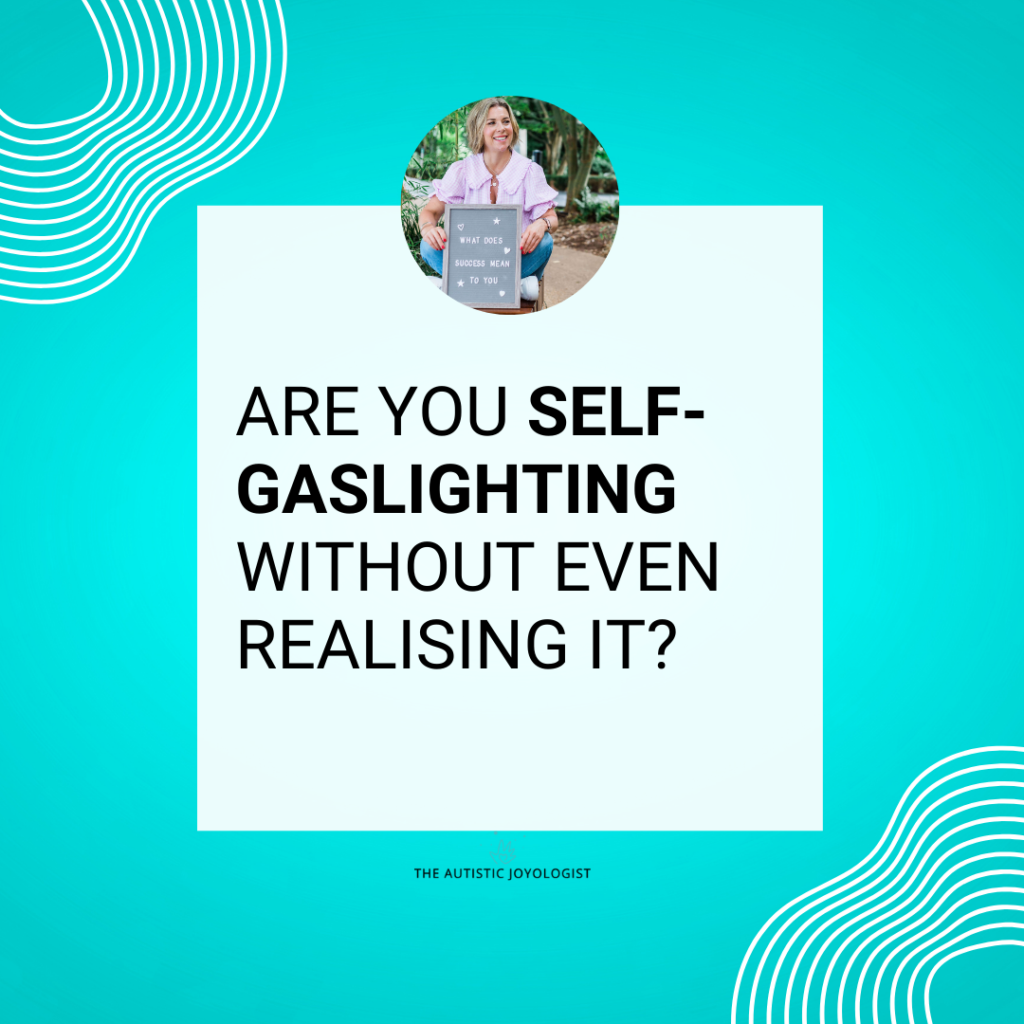Have you ever caught yourself thinking, “I’m overreacting” or “It wasn’t that bad”? Maybe you’ve pushed down your feelings, told yourself to “suck it up,” or brushed off a hurtful experience as no big deal. I know I have. If this sounds familiar, you’re not alone. Many of us, especially neurodivergent women, fall into the trap of self-gaslighting without even realising it.
Self-gaslighting is when we invalidate our own emotions and experiences. For neurodivergent women, this can be especially harmful because our experiences and feelings are often dismissed or misunderstood by others. Over time, this external invalidation can become internalised, leading us to doubt our instincts, suppress our emotions, and silence our inner voice. The result? We minimise our needs and make ourselves smaller to fit into a world that wasn’t designed with us in mind.
Adding to this, research shows that women are significantly less likely to be diagnosed as autistic or ADHD (often referred to collectively as AuDHD) due to societal expectations and the tendency to mask. Masking involves suppressing neurodivergent traits to appear “normal” and fit into social norms, a survival mechanism that can be both exhausting and damaging to one’s sense of self. The diagnostic criteria were historically based on studies of men and boys, leaving many women undiagnosed or misdiagnosed well into adulthood. This lack of recognition often amplifies the internalised invalidation and self-gaslighting experienced by neurodivergent women, as their struggles are overlooked or dismissed.
From an early age, we are often taught to suppress our emotions to avoid being seen as “too sensitive” or “too much.” Phrases like “Don’t be so dramatic” or “You’re overthinking it” send a clear message: your feelings aren’t valid. This conditioning, compounded by societal pressures to “stay strong” and “keep it together,” can make it incredibly difficult to trust ourselves and our unique ways of experiencing the world.
But here’s the truth: your emotions are valid. Your experiences matter. And you deserve to feel seen, heard, and supported – especially by yourself.
Breaking the Cycle of Self-Gaslighting
So how do we stop self-gaslighting and start validating our emotions? It begins with awareness. Recognising when we’re invalidating our own feelings is the first step to breaking the cycle.
Here are some practical ways to start:
- Acknowledge Your Emotions
Instead of dismissing what you’re feeling, name it. Ask yourself, What am I really feeling right now? Whether it’s sadness, frustration, anxiety, or even joy, giving your emotions a name helps you process them. - Challenge Negative Self-Talk
Pay attention to phrases like “I’m overreacting” or “I just need to get over it.” These are signs of self-gaslighting. Instead, try reframing your thoughts: My feelings are valid. It’s okay to feel this way. - Tune Into Your Needs
Emotions often carry important messages about what we need. If you’re feeling overwhelmed, maybe you need rest. If you’re hurt, perhaps you need comfort or connection. Ask yourself, What do I need to honour this feeling? - Practice Self-Compassion
Treat yourself with the same kindness and understanding you’d offer a friend. Remind yourself that it’s okay to have difficult emotions and that you’re doing the best you can.
The Power of Validation
When neurodivergent women stop self-gaslighting and start validating their emotions, it opens the door to deeper self-awareness and emotional resilience. Vulnerability isn’t a weakness; it’s a strength. By honouring your feelings, you’re giving yourself permission to show up as your authentic self.
Breaking free from self-gaslighting isn’t easy. It takes practice and patience. But the more you tune into your inner voice and embrace your emotions, the more you’ll build a foundation of self-trust and compassion.
So, the next time you catch yourself brushing off your feelings, pause. Take a deep breath. And remind yourself: I deserve to feel, to heal, and to honour my truth.
